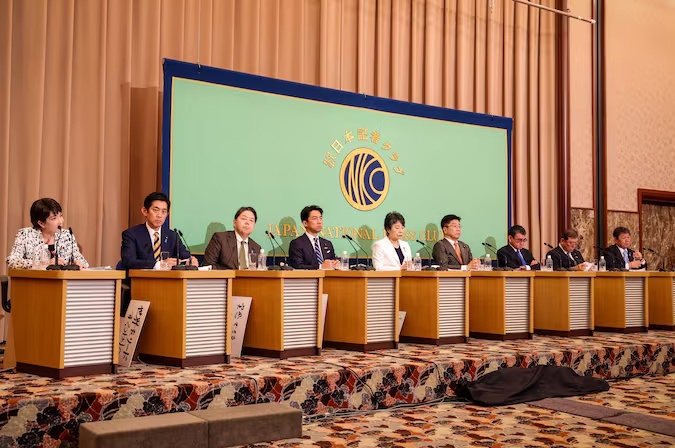Japan’s ruling political party, the Liberal Democratic Party (LDP), votes for its next leader on Friday, it will effectively be choosing the country’s next prime minister, Time reports.
During the tenure of Prime Minister Fumio Kishida, who announced in August that he would step down after taking power in 2021, there have been a string of scandals. From his son throwing a party at his official residence to alleged irregularities in fundraising by party members, the scandals, in addition to failed economic reforms, have eroded the LDP’s popularity and forced a reset.
A record nine lawmakers are running in the intra-party election, vying for majority support among 368 members of parliament and 368 representatives of the party’s more than one million dues-paying rank-and-file members. Most candidates, according to AP, have vowed to demand a general election, not due until October 2025, shortly after they are elevated in the party to try to capitalise on their new image.
The key issue at stake for the LDP is regaining public confidence. Many observers note that this change could come about through the LDP’s first female president in its history. Two of the nine candidates, including one of the three main contenders, are women. Japan is the only G7 country other than the US that has never had a woman head of government, and some party members say such a move could greatly improve its image.
But experts tell TIME that despite the momentum and opportunity, the party is unlikely to choose a female leader, citing its patriarchal history, domestic politics and lack of political competition.
Women among Japan’s ministerial candidates
Among the women nominated for the Sept. 27 LDP chairwoman election is Economic Security Minister Sanae Takaichi, 63, a veteran LDP politician who has been compared to Margaret Thatcher in Britain. Takaichi ran in 2021 with the support of the late Prime Minister Shinzo Abe and came in third. According to a Kyodo News poll, LDP supporters favor her as Japan’s next prime minister.
There is also incumbent Foreign Minister Yoko Kamikawa, 71, whom party vice president and former Prime Minister Taro Aso, a self-proclaimed “kingmaker,” called a “rising star.”
A Pew Research Center poll earlier this year found that Japan has a high proportion of citizens who “believe that men and women are generally equally good as leaders.” But the LDP cares little about public opinion, at least in the context of women’s representation. “For the LDP, domestic politics is the most important issue,” Mikiko Eto, professor emeritus of gender and politics at Hosei University in Tokyo, told TIME, adding that for the LDP, women are used mainly as tokens. In 2021, the LDP leadership called for female party members to attend key meetings in the wake of sexist remarks by the former prime minister, but it turned out that women were only allowed to observe but not speak.
Hiroko Takeda, a political science lecturer at Nagoya University Graduate School of Law, said the LDP has become a “separate universe” in Japan. LDP members treat parliamentary office as a household or family business that is “inherited,” Takeda says, so it is difficult for newcomers to politics, especially women, to get into key positions.
The current ministers are in the race too
Although opposition parties are putting women in leadership positions, Emma Dalton, a senior lecturer in Japanese studies at La Trobe University in Australia, says they are too weak to increase pressure on the LDP to demand greater inclusiveness. “The LDP has a bit of a problem, and I think they realise that. But at the same time, the Japanese public, I think, is just looking around and saying, ‘Well, where is the realistic opposition?’”
Other frontrunners in the LDP presidential election include former defense minister and LDP veteran Shigeru Ishiba, 67, who is running for the fifth time. Another favorite is Shinjiro Koizumi, the 43-year-old son of former Prime Minister Junichiro Koizumi. Shinjiro Koizumi, who is more than a decade younger than the average Japanese lawmaker, will also offer striking changes for the LDP, which has struggled to woo young voters. Also running is Taro Kono, the current minister of digital technology, who previously ran for party chief in 2021 and lost to Kishida in the second round.
Nevertheless, it is possible that one of the female candidates will win Friday’s election, which is expected to move to a runoff. But while a victory by either would be a feat for Japan on the international stage, it would not necessarily signal a change in the LDP’s attitude toward women. This from Hosei University predicts that while Kamikawa may steer the LDP in a more women-friendly direction, “she will not act on her campaign promises because of political conventions and customs within the party.” As for the more conservative Takaichi, “she behaves like a man,” Eto says, “often hostile to feminist issues or gender concerns.”
